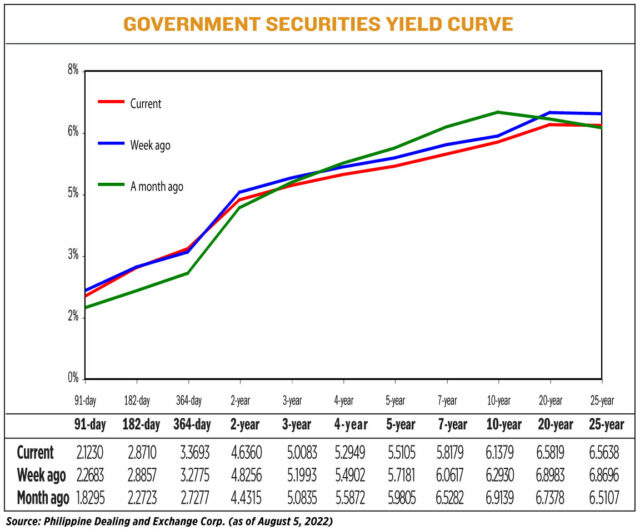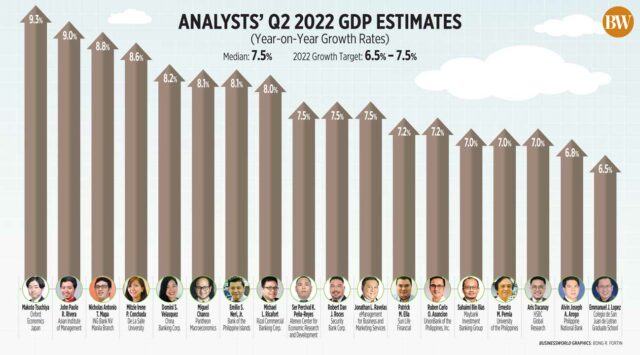THE URGENCY of estate planning has been magnified by the recent changes in the country’s estate tax laws, as well as the rising prices of goods and services, AIA Philippines said.
“Zonal values were actually being brought up aggressively depending on the location. So essentially, if it’s 6%, when the zonal value has increased 10 times, then it becomes 60% relative to the original 20% that you were actually budgeting,” AIA IM Philippines Chief Executive Officer Angel Marie L. Pacis said in a virtual interview. AIA IM is the investment management arm of AIA Philippines.
“Real property valuation has actually tripled over the past years because of the non-stop real estate developments throughout the country and, of course, because of the Congressional mandate to the BIR (Bureau of Internal Revenue) to re-assess real estate valuation every three years,” AIA Philippines Assistant Vice-President and Legal Counsel Jenny Anne T. Dones said.
In 2018, the estate tax rate was set at 6% of the net estate under the Tax Reform for Acceleration and Inclusion (TRAIN) law from a graduated rate that ranged between 5-20% previously.
While having a single rate simplified the estate tax system, the valuation base was adjusted upwards, resulting in higher tax assessments.
Ms. Pacis added that zonal values were also affected by Russia’s invasion of Ukraine as it disrupted global supply chains and inflated the prices of commodities. This can lead to a revaluation of assets and possibly higher tax obligations, she said.
“Over time, values tend to go up, tax rates tend to go up, and if you don’t distribute today and you opt to distribute in the future, then chances are taxes will be higher,” Ms. Pacis said.
She said estate planning is an underdeveloped industry in the country as it is perceived to be immediately and solely focused on the payment of estate tax.
Most people are not aware that estate planning involves the need for an inventory of assets, negotiating the terms of distribution with the beneficiaries, and securing a clearance from the BIR, Ms. Pacis said.
“A family is likely to face problems at each of these steps, and therefore estate planning should allow you to hurdle each step as smoothly as possible. What it does is preempt any potential problems that could erupt at every step of the legacy planning process,” she said.
A persistent problem in the industry is conflict among the beneficiaries and the lack of action towards conflict minimization or prevention.
“I would actually recommend making sure that potential conflict when you’re gone is minimized because, if you do that, then that’s actually a good way of indirectly minimizing the expenses. Remember, if they fight, on top of the BIR fees, they’re going to pay the lawyers,” Ms. Pacis said.
Ms. Dones added that estate planning can be designed around ensuring the financial viability of benefactors, or even estate preservation or expansion, when the benefactor is no longer around.
Estate planning can help in minimizing wealth leakages like tax, medical expenses, and litigation expenses, as well as ensure liquidity in moments of need, she added.
“Not paying more than is necessary is definitely an important goal, but sometimes estate planning is really a trade-off… It’s like a zero-sum game — it could actually prevent conflict but it could actually increase the tax rate, or sometimes minimizing that tax rate actually forces you to let go of the control,” Ms. Pacis said.
“I actually caution clients from designing their legacy planning around tax minimization because, while that is an important goal, by walking through their vision, their issues, their needs, the specific considerations, the factors that are actually present now, they may realize that sometimes paying a little bit more taxes provides a better fit for the overall objectives of the benefactor,” she added.
TAX REFORMS
Meanwhile, under the TRAIN law, large taxpayers were also mandated to declare major purchases and sales data through e-receipts or e-invoices within the next five years of the law’s implementation. This was meant to address issues on compliance and business transactions transparency.
“It is just a matter of time for the BIR to develop its data analytics capability and understand the purchasing capabilities of its tax subjects. Digital developments are seen to boost BIR’s tax collection efficiency,” Ms. Dones said.
At the same time, the exchange of financial information between borders was eased under the Automatic Exchange of Information and its reporting mechanism called the Common Reporting Standards (CRS). It is designed to allow a signatory country to access the financial information of other signatory countries without the need for the former to request access.
The Philippines has yet to fully commit to the CRS but AIA expressed its intent to comply with it once it does.
“It is more difficult to hide your money from the BIR or any taxing authority for that matter because countries would have the ability now to look at your financial activities wherever you may be in the world,” Ms. Dones said.
She also expects the passage of Real Property Valuation Reform and the Ease of Paying Taxes, both of which were tagged as priority bills by the Marcos administration.
“Reforms to property valuation system in the country and shielding it from political influence will improve revenue collection for the LGUs (local government units) without increasing the existing tax rates or imposing new taxes,” said Ms. Dones. — Diego Gabriel C. Robles


















